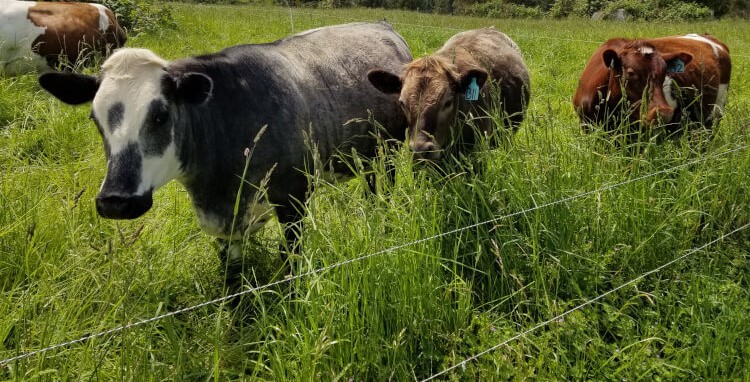GMO SOLUTION TO FARMERS-HERDERS’ CLASHES
By Blessing Ituma

Recently, President Bola Tinubu approved the establishment of a Presidential Committee dedicated to the reform of the livestock industry and the provision of long-term solutions to recurring clashes between herders and farmers in the country.
Some Scientists however are of the opinion that the application of emerging biotechnologies like the application of the genetically modified organisms GMOs to plants and livestock would bring solution to issues of farmers/herders’ clashes in Nigeria and across Africa.
Correspondent Blessing Ituma completes the report.
Voice
The Scientists who spoke with Radio Nigeria in Port Harcourt commended the innovative move by the President while noting that the use of GMOs would improve the nutritional value of pastures, increase yield, resulting in abundance of food for all seasons.
Professor Hyginus Oku who is an Environmentalist noted that while it was important to boost crop yield and livestock; the adoption of emerging biotechnologies and expertise by the Minis of agriculture and relevant agencies was highly required to improve crop yield and livestock production.
“What is necessary in this circumstance is a complete discipline and regulation on the part of government”
An Agriculturist who is a geneticist and plant breeder with the University of Port Harcourt, Dr. Andrew Efisue explained how a combination of highly nutritional grasses and selection of the ones with resilient gene would produce the best pasture stating that what was required was for researches to be carried out on the grasses.
He noted that the use of genetically modified organism GMO to achieve a highly nutritional pasture with high yield was very effective and will tackle the issue of migration due to the lack of food as much grass would be produced within a ranch.
“Most of these grasses we are using, they are not very resilient in terms of bio-mass. When it comes to dry season, they will dry up immediately, but if you can transfer a resilient gene into some of these grasses or even during dry season, you can still produce a lot of fluffy grasses. Some of the grasses we are using have not been researched on”
The Geneticist said the use of the Silo would help preserve pastures.
” When you transfer the gene into it and the bio-mas is increase, you have excess and you can put it into silos for preservation for them. Instead of them moving around, they can have a ranch where we plant these GMO grasses for there and they will harvest and they will graze and they can keep. Migration because of food, GMO an really solve that one”
Similarly, the head of Department, Forestry and Wild life, also of the University of Port Harcourt, Dr Oladele Adekunle said farmers must prioritize the creation of ranches and that government should put in place supportive policies.
” Just like it is done in the UK, a lot of people are no longer taking their cow to the field, they feed them with dry leave, agriculture in this country should be with a target. Instead of producing one thousand tons per hectar, it will be producing five thousand tons. A lot of genetics has to be done so that we phase out all this old breed and produce breeds that and survive the condition we have now. If you go to schools, universities, you see a lot of researches have been conducted on these GMOs and other areas. Nigerian Government should do something about it ”.
On his part, a Land Use Planner, Mr. Stan Okwuocha observed that drought and desertification in the environment were responsible for the movement of cattle stating that with the use of GMO special breeds of cattle that would survive the condition and feed on dry leaves was possible.
Mr. Okwuocha who urged the federal ministry of agriculture to be proactive and invest in researches as well as find out from institutions of learning, the researches that are beneficial to the sector, debunked controversies that GMOs could cause cancer stating that scientific innovations and researches were not based on assumption.
When Radio Nigeria sought to know from some undergraduates studying agriculture in the University of Port Harcourt, their knowledge about GMOs, it was varied.
“ it improves the size of the crops, it attracts marketers, it brings about increased income. One of the disadvantages is if you modify an organism genetically, it can cause some health issues. They say it causes cancer”.
From the response of the students, it is obvious that scientists still have a lot to do to stop the controversies on GMOs and to kindle the hope that it brings solution and not harm.
In Port Harcourt, Blessing Ituma, Radio Nigeria

